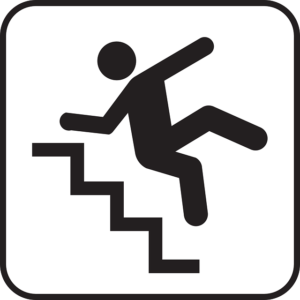Fear of loud noises is a common phobia for many people. It can be difficult to deal with and can lead to feelings of anxiety, stress, and even panic. For those who are struggling to cope with their fear of loud noises, there are certain strategies that can help them manage the fear and eventually overcome it. In this article, we will discuss some tips on how to effectively overcome a fear of loud noises.
The first step in overcoming any fear is understanding what causes it. For those with a fear of loud noises, it could be due to a traumatic experience or simply an irrational fear that has been developed over time. Once the cause has been identified, individuals can then focus on dealing with it in order to move past the fear and gain some control over their emotions. With the right techniques and support system in place, anyone can learn how to face their fears and ultimately conquer them.
Identifying The Cause Of Fear
 It’s normal to be afraid of loud noises. But for some people, their fear can be so intense that it becomes debilitating and affects their quality of life. To overcome this fear, it is important to identify the cause of the fear.
It’s normal to be afraid of loud noises. But for some people, their fear can be so intense that it becomes debilitating and affects their quality of life. To overcome this fear, it is important to identify the cause of the fear.
For some people, the fear of loud noises may stem from a traumatic experience such as being in a car accident or living through a natural disaster. Other people may have developed this fear as a result of negative reinforcement during childhood or adolescence when they were scolded for making noise. It is important to identify what is causing the fear in order to begin working on overcoming it.
Understanding The Symptoms Of Fear
The symptoms of fear of loud noises can vary from person to person, but some common signs include feeling anxious, shaky, or panicked when hearing a loud noise. People with this type of fear may also experience heart palpitations, sweating, and even difficulty breathing. It is important to recognize the physical and emotional signs that you are experiencing in order to better understand your fear.
One way to address the fear of loud noises is through cognitive behavioral therapy (CBT). This type of therapy helps people learn how to manage their emotions and reactions in challenging situations. The therapist can provide techniques such as relaxation exercises or breathing techniques that can help reduce anxiety when hearing a loud noise. Additionally, one may try desensitizing themselves by gradually exposing themselves to louder noises over time in order to help decrease the anxiety associated with them.
It is possible to take steps towards overcoming the fear of loud noises by understanding one’s symptoms and seeking professional help if needed. With the right support system and treatment plan, it is possible to manage your fear and live more confidently.
Building Confidence And Self-Esteem
Fear of loud noises can be a debilitating and isolating experience, but there are ways to face it and even overcome it. One of the best strategies is to build confidence and self-esteem. It may seem counterintuitive, but having a healthy sense of self-worth can help you take back control from the fear.
Focus on the things that make you unique, such as your talents and interests, and strive to develop them further. Don’t let fear stand in the way of achieving your goals; instead, use it as motivation to prove that you’re capable of anything you set your mind to. Celebrate every small success and remind yourself that courage isn’t the absence of fear – it’s taking action despite feeling scared. With enough practice, you’ll gain the confidence needed to confront your fears head-on.
Practicing Relaxation Techniques
It’s completely understandable to have fear of loud noises. But with practice, you can learn to cope with the fear and manage it better. One way to do this is by practicing relaxation techniques.
Deep breathing can be a great tool for calming yourself down when you’re feeling overwhelmed or scared. Start by taking slow, deep breaths in through your nose and out through your mouth. Focus on each breath, feeling the air fill your lungs and noticing how it feels to exhale. Visualization is another helpful technique as it can help you imagine yourself in a safe, comfortable place—perhaps somewhere that’s quiet and peaceful, like a beach or a meadow. Concentrate on the details of this scene: what do you see? What do you smell? What sounds are there? Conjuring up these images can help soothe and relax you when worrying thoughts start to creep in.
Seeking Professional Help
Once you’ve practiced relaxation techniques, it’s important to consider seeking professional help if the fear of loud noises persists. A therapist or psychologist can help you to gain insight into why loud noises are so frightening to you and can provide support as you work through your fear. They may recommend cognitive behavioral therapy, which is a type of talk therapy that focuses on identifying negative thought patterns in order to make positive changes in behavior. Additionally, they can teach you relaxation techniques and offer other strategies for managing anxiety when confronted with loud noises. With the right guidance and support, it is possible to overcome your fear of loud noises and regain a sense of control over your life.
It’s important to remember that it can take time and patience to effectively manage fear of loud noises. While seeking professional help is beneficial, there are also some self-help strategies that you can use at home such as practicing deep breathing exercises or engaging in mindfulness activities when feeling overwhelmed by noise. Talking with friends and family members who understand what you’re going through can also be helpful. Most importantly, be kind and gentle with yourself during this process; don’t expect yourself to overcome this fear overnight — give yourself the space and time necessary to heal.
What Are Some Common Triggers Of Fear Of Loud Noises?
Fear of loud noises, also known as phonophobia, can have a variety of triggers. Common triggers include thunderstorms, fireworks, construction work, and even vacuum cleaners. It’s also possible to experience fear in response to unexpected loud noises or unfamiliar sounds. People with this phobia may experience physical symptoms such as an increased heart rate or difficulty breathing in response to these sounds. They may also have feelings of anxiety and panic that are hard to control. Knowing the potential triggers of phobias can help people learn how to better manage their fears.
How Can I Reduce The Intensity Of Loud Noises?
One way to reduce the intensity of loud noises is to use sound-proofing materials such as foam or acoustic tiles. These materials can be placed on walls, floors and ceilings in order to absorb sound and muffle the noise. Additionally, using noise-cancelling headphones or earplugs can help block out loud noises while still allowing you to hear quieter sounds. Finally, if possible, try to move away from the source of the noise in order to minimize its impact.
How Can I Help A Loved One Who Has A Fear Of Loud Noises?
If you have a loved one with a fear of loud noises, it can be difficult to know what to do. The best way to start is by talking to them about it and listening to their concerns. Showing empathy and understanding can go a long way in helping them feel more comfortable. Additionally, you can help create a safe space for your loved one by reducing the sound levels in the environment when possible. This could include wearing noise-cancelling headphones or earplugs, moving away from noisy areas, or using white noise machines or soothing music. Finally, encourage your loved one to practice positive self-talk and deep breathing exercises when they feel overwhelmed by loud noises.
Are There Any Lifestyle Changes That Can Help Me Cope With This Fear?
Living with a fear of loud noises can be a difficult and uncomfortable experience, but there are lifestyle changes that can help you cope. Consider seeking out therapy or counseling to help identify the root cause of your fear and learn coping mechanisms. If possible, try to limit your exposure to loud noises in order to reduce your anxiety. Also, practice relaxation techniques such as deep breathing and mindfulness exercises to help you stay calm in situations where noise is present. With patience and dedication, it is possible to manage your fear of loud noises and lead a more relaxed life.
Are There Any Medications That Can Help Me Manage My Fear Of Loud Noises?
When it comes to managing a fear of loud noises, many people turn to medications for help. Commonly prescribed medications for this type of anxiety include selective serotonin reuptake inhibitors (SSRIs) and benzodiazepines. SSRIs can help regulate chemical imbalances in the brain, while benzodiazepines can provide short-term relief from intense symptoms of fear. However, it is important to speak with a doctor before taking any sort of medication as there are potential risks and side effects associated with them.
It’s important to remember that fear of loud noises is a common issue, and it can be managed with the right steps. I can take proactive measures like reducing the intensity of loud noises in my environment or finding ways to cope with them better. There are also medications available that can help me manage this fear if necessary. It’s also important to reach out for help if needed – whether it be from a loved one, doctor, or professional therapist – so that I can find a way to overcome this fear and regain control of my life. With the right approach, I’m confident that I can get through this and live a healthier, happier life.





